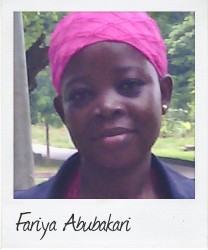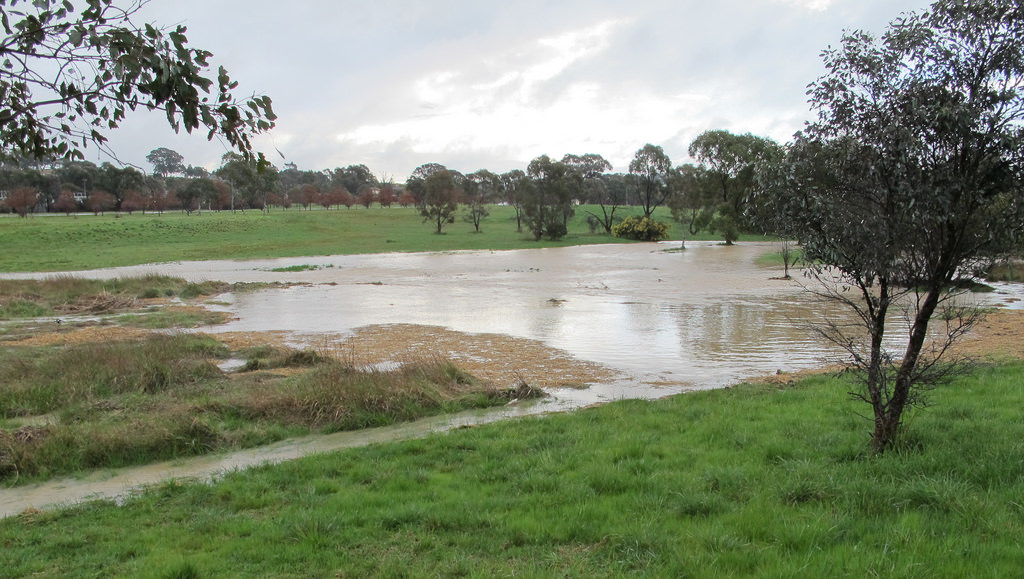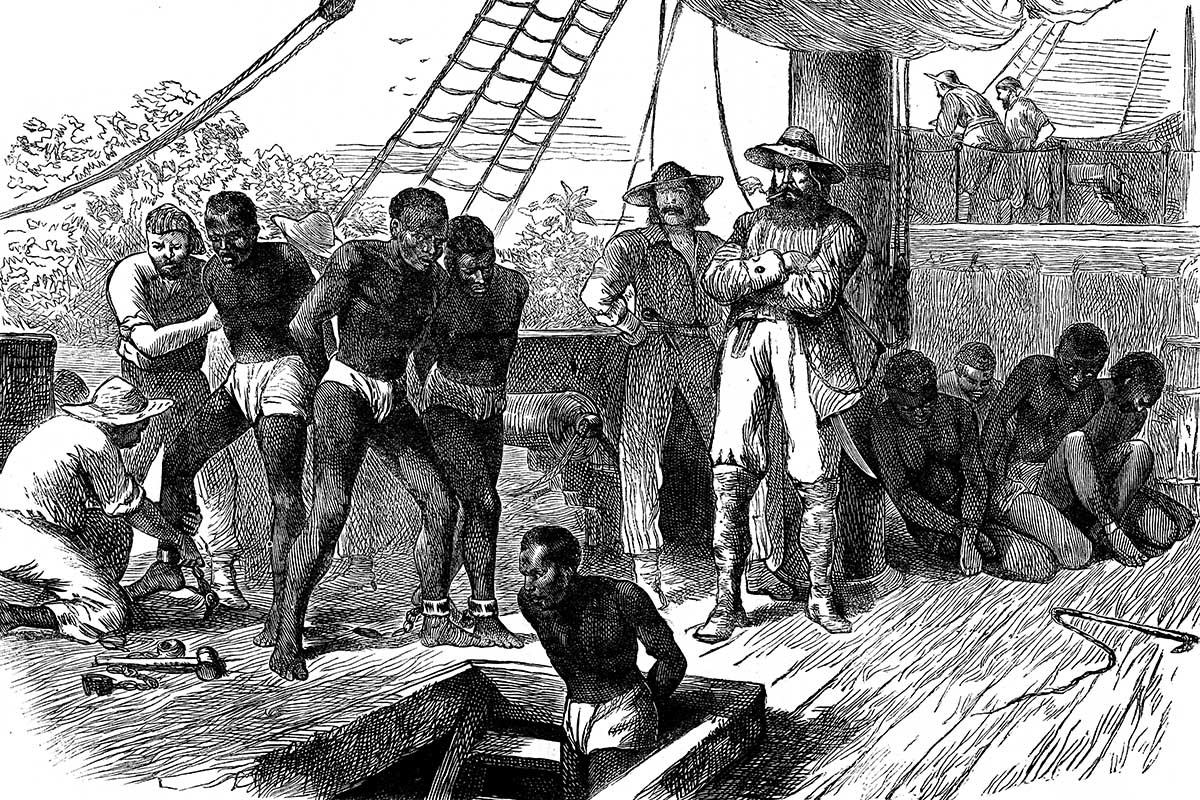“Climate change a ‘creeping disaster’ in Ghana”
September 29th, 2016 Climate change is a fact of life in many regions, writes Fariya Abubakari, 26, a Commonwealth Correspondent from Bawku, Ghana, as she describes the economic impact and the personal toll on those vulnerable to changed conditions.
Climate change is a fact of life in many regions, writes Fariya Abubakari, 26, a Commonwealth Correspondent from Bawku, Ghana, as she describes the economic impact and the personal toll on those vulnerable to changed conditions.
“I am confused and don’t think my child can continue her education to the university. I will not plant next year as I am struggling to keep a goat alive and all my crops are flooded. I have lost everything that I can boast off”.
Those were the words of Veronica, a 35 year old widow farmer who lives with her eight children in the northern region of Ghana. She belongs to a family where farming had been followed for generations and depends on it for their livelihood.
Every farming season, Veronica goes to their village to cultivate and harvest maize, millet and sorghum which are the staple food crops in the region. Besides these food crops, the family is famous for rearing cattle, sheep, goat and guinea fowl. Veronica has twenty goats, most of which have been sick for the past two months because of lack of water. She sold those she cannot feed, which affected her income.
“I can’t buy enough food to eat and feed my children; I have to cut from three meals a day to one. We have to consume millet flour which is not a nutritious diet,” Veronica added.
The family did not escape last year’s flood, which led to the displacement of their homes, chicken, goats – everything got smashed. Veronica woke up and heard her neighbors shouting. When she swung her legs off her bed, she became confused to step into water. To their utter dismay, the water level was around their ankles and the whole of their cultivated farm of ten acres of maize, millet and sorghum was flooded. They moaned bitterly and said “for what crime have we committed to be paid with such an unforgettable punishment?”
The family used to be the richest in the community with their livestock, and had enough food to eat and surplus for sale. Now things aren’t that easy for the family, and some of the children are beggars in the street as a result of these climate change impacts.
The yearly drought in this region makes it difficult for farmers to provide sufficient food and water to their animals. It withered up their crops, dried up streams, scorched the earth and left many trees naked. Watching the crop tendrils withering and young roots rotting is a sorrowful moment to these farmers. Because of water scarcity in this region, men go off with livestock to find water by travelling hundreds of miles for months at a time, or they drop out of pastoral life and flow into towns to look for odd jobs, leaving their wives and children behind. Meanwhile, women trek long distances in search of water and end up as rape victims.
Water shortages and flooding is severe, especially in the northern regions of Ghana. These regions with their extensive agricultural lands could have played a key role in the food security of millions of people, but rising temperatures have caused severe drought, decreased livestock and fish population, crop decline, food shortages and malnourishment, and an influx of pests and diseases such as cerebro-spinal meningitis, malaria, cholera and cardiovascular diseases that take away human life.
The severe drought and flood in these regions has also led to migration of young energetic men and women to the cities in search of greener pastures, where they engage in various dehumanising ventures such as forced labour and domestic servitude. There is no year that passes by without thousands of women fleeing climate change impacts, only to find themselves forced to work such as carrying heavy luggage beyond their strength, which is injurious to their health and in the end earns less than $1.25 a day. These women migrants in Ghana are referred to as “kayayei” which means head porters, but I always refer them as “internal climate refugees”.
Electric power for the country depends mainly on hydro power generated from a dam at Akosombo built in 1965. The entire economy of the country is currently suffering from low water levels at the Akosombo dam, caused by drought. This has affected all sectors of the economy including industry, mining and domestic life. Manufacturers are reducing output, shortening the workweek, or even remaining idle. Revenue to the state dwindled due to shortfalls in production by several million dollars in 2006 due to the severe drought. According to the climate change Vulnerability Index for 2015, seven of the ten countries most at risk from climate change are in Africa.
Climate change is a great threat and it is crucial for all countries to act now. We are at cross-roads and only decisive and immediate action will make it possible to influence the future consequences of climate change. Developed countries must cut their emissions drastically, as countries like Ghana have contributed the least to deserve this menace. I therefore call for a 1.5 degrees limit to global temperature increase, as limiting warming below 2 degrees will yield a number of avoided impacts such as sea level rise, flood, and drought. This will prevent severe, pervasive and potentially irreversible impacts while allowing our ecosystem to adapt naturally to ensure that food production is not threatened.
Email: fariyaabubakari@yahoo.com
photo credit: spelio pano of flooded creek near Mirrabei Dr via photopin (license)
…………………………………………………………………………………………………………………
About me: I am from Bawku in the Upper East Region of Ghana, where I am the Country Coordinator of End Ecocide Ghana, a soil scientist and a climate tracker activist who writes about Ghana’s role in international climate negotiations. I am a graduate student of Kwame Nkrumah University of Science and Technology and love researching, reading, writing and cooking.
…………………………………………………………………………………………………………………
Opinions expressed in this article are those of the author and do not necessarily represent the views of the Commonwealth Youth Programme. Articles are published in a spirit of dialogue, respect and understanding. If you disagree, why not submit a response?
To learn more about becoming a Commonwealth Correspondent please visit: http://www.yourcommonwealth.org/submit-articles/
…………………………………………………………………………………………………………………




